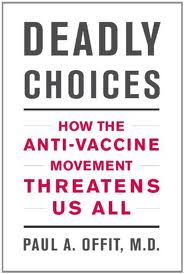
February 1st, 2011 by DrWes in Better Health Network, Opinion
Tags: Doctor Vs. Nurse, Doctors in the Future, Doctors of Medicine, Dr. Wes Fisher, Future Healthcare Providers, General Medicine, Hands-On Care, Healthcare Provider Titles, Healthcare reform, Hospitalists, Medical Doctors, Medical Practitioner Labels, Medical Skill, New U.S. Healthcare System, Nurse Practitioners, Primary Care, Roles in Healthcare Delivery, The Future of American Healthcare
No Comments »

 It came as a Twitter “follow” from @coldfeet65, a self-proclaimed “Nurse Practitioner Hospitalist.” I had never heard this term before. Does it mean a nurse practitioner who cares for hospitalists? Or is it a hospitalist who is a nurse practitioner? Or maybe it’s a nurse practitioner who helps hospitalists? (Honestly, I think I know which one she means, but you get my point.)
It came as a Twitter “follow” from @coldfeet65, a self-proclaimed “Nurse Practitioner Hospitalist.” I had never heard this term before. Does it mean a nurse practitioner who cares for hospitalists? Or is it a hospitalist who is a nurse practitioner? Or maybe it’s a nurse practitioner who helps hospitalists? (Honestly, I think I know which one she means, but you get my point.)
Perhaps this is a prescient glimpse to healthcare of the future, where our more typical nurse and doctor labels are supplanted by more and more monikers that serve to confuse, rather than clarify, each of our roles in healthcare delivery. As specialists in cardiology, we’ve seen a similar trend with cardiology hospitalists. But we should be clear what this means to the patients and doctors going forward.
No doubt most people in America still expect to see a doctor when they come to the hospital. Increasingly, it appears that might not be the case. Your doctor might be a robot while a nurse (aka, nurse practitioner) will be the one providing the hands-on care in the inpatient setting. Is that a good thing? Honestly, I’m not sure.
No one argues that the costs in healthcare need to be cut. No doubt the central authority has deemed that doctor salaries will be a big part of that effort. Already, 20 states have cut physician Medicaid payments for fiscal year 2010 and, given the current economic pressure on our states both now and after they start feeling the financial impact of the “Affordable” Care Act in 2019, this trend is not likely to improve anytime soon. As a result, we are seeing that the world is full of “creative solutions” to our healthcare access crisis and the evolution to “nurse practitioner hospitalists” might be one of these. Read more »
*This blog post was originally published at Dr. Wes*
January 31st, 2011 by Toni Brayer, M.D. in Health Policy, Opinion
Tags: Better Care, Care Coordination, Chronic Disease Management, Chronic Illness, Chronically-Ill Patients, Cutting Healthcare Costs, Dr. Atul Gawande, Dr. Toni Brayer, Everything Health, Healthcare Cost Drivers, Healthcare Policy, Lower Healthcare Costs, Neediest Patients, Preventive Care, Preventive Health, Preventive Medicine, Sickest Patients, The Hot Spotters, The New Yorker Magazine
1 Comment »

 Author-physician Dr. Atul Gawande has done it again with a well-written article in The New Yorker magazine entitled, “The Hot Spotters.” It deals with the fact that 5 percent of people with chronic illness make up over 50 percent of all healthcare costs.
Author-physician Dr. Atul Gawande has done it again with a well-written article in The New Yorker magazine entitled, “The Hot Spotters.” It deals with the fact that 5 percent of people with chronic illness make up over 50 percent of all healthcare costs.
If we can zero in on providing better preventive care for those people, we can finally get our arms around runaway healthcare costs. How great that you don’t even have to have a New Yorker subscription to read it. Here are a few cliff notes until you get to it:
— In Camden, New Jersey, one percent of patients account for one-third of the city’s medical costs. By just focusing attention on the social and medical outpatient needs of those people, they not only got healthier but costs were cut in half.
— Our current system is unable to reign in costs. We need to completely re-design and fund how we do primary care.
— Charging high co-payments to people with health problems just backfires. They avoid preventive care and end up hospitalized with expensive and life-threatening illnesses that are much worse and more costly. Read more »
*This blog post was originally published at EverythingHealth*
January 31st, 2011 by Bryan Vartabedian, M.D. in Book Reviews, Opinion
Tags: 33 Charts, Anti-Vaccine Movement, Children's Health, Children's Hospital of Philadelphia, Deadly Choices, Dr. Bryan Vartabedian, Dr. Paul Offit, Family Medicine, General Medicine, Immunization, Immunology, Infectious Disease, Pediatrics, Preventive Health, Preventive Medicine, Primary Care, Public Health, Spread Of Disease, Vaccination, Vaccine Advocacy, Vaccine Controversy, Vaccine Education, vaccine safety, Vaccine Truths, Vaccine-Autism Link
No Comments »

 A friend suggested she was tired of hearing about vaccines. Her comment and our subsequent conversation seemed to reflect an important shift in parent sentiment: The conversation about vaccines is beginning to get somewhere.
A friend suggested she was tired of hearing about vaccines. Her comment and our subsequent conversation seemed to reflect an important shift in parent sentiment: The conversation about vaccines is beginning to get somewhere.
While much of this was born of the mainstream media’s newfound realization that the vaccine-autism connection was cooked, some of this is due to the tireless work of those like the Children’s Hospital of Philedelphia’s Dr. Paul Offit who get the story right.
As part of his passionate agenda to expose vaccine truths, he’s published “Deadly Choices: How the Anti-vaccine Movement Threatens Us All” (Basic Books, 2011). For those looking to understand the origins of anti-vaccine sentiment, read this book.
What struck me is the deep history behind the anti-vaccine movement. From Jenner’s smallpox fix to modern-day MMR struggles, Offit draws fascinating corollaries surrounding immunization that seem to defy the generations. Vaccine resistance was not born of Andrew Wakefield, but broader concerns rooted in religion, individual liberty, fear and propaganda. “Deadly Choices” puts the anti-vaccine movement in a historic sequence that reads like good suspense. I couldn’t put it down. Read more »
*This blog post was originally published at 33 Charts*
January 31st, 2011 by Lucy Hornstein, M.D. in Health Policy, Opinion
Tags: Dr. Lucy Hornstein, Health-Related Tax Deductions, Healthcare Spending Accounts, HSA, Internal Revenue Service, IRS, Medical Deductions, Medical-Related Tax Deductions, Medicine and Government, Musings of a Dinosaur, Tax Code, Tax Incentives, Tax Shelter
No Comments »

I saw this via a friend’s Facebook post:
Really, IRS?
Believe it or not, the folks at the IRS think they know more about breastfeeding than doctors and medical researchers.
According to an article in the New York Times, the Internal Revenue Service has determined that breastfeeding “does not have enough health benefits to qualify as a form of medical care.” Therefore, women cannot count expenses for breastfeeding supplies in their tax-sheltered healthcare spending accounts.
In doing so, the IRS has ignored the guidance of experts at the Department of Health & Human Services and World Health Organization who are actively promoting breastfeeding because of its significant health benefits for mothers and children.
Sign our petition reminding the IRS to leave medicine to the experts!
Oh get real, people!
First of all, you will never — by which I mean not EVER — find someone more supportive of breastfeeding than I am. I nursed my last kid for two whole years, and the only reason I gave up the first time was because there were two of them (kids, that is). So don’t go trying to lump me in with those terrible, mean, unsupportive doctors who are sucking at the teat (pardon the choice of idiom) of the amoral, soulless baby formula manufacturers.
The IRS may have worded the decision poorly, but they are not making medical decisions. They’re not even expressing a medical opinion. They are drawing a line that needs to be drawn between what constitutes “medical care” and “being healthy.” Read more »
*This blog post was originally published at Musings of a Dinosaur*
January 30th, 2011 by GarySchwitzer in Health Tips, Opinion
Tags: Atlanta Hawks, Gary Schwitzer, Georgia Prostate Cancer Coalition, HealthNewsReview.org, Men's Health, Morehouse School of Medicine, Prizes For Prostates, Prostate Cancer Screening, PSA Screening, Radiotherapy
1 Comment »

We’ve seen it before. A couple of years ago, I wrote about Roswell Park’s Prostate Club for Men offering “Prizes For Prostates” — Buffalo Sabres hockey tickets or Buffalo Bills football tickets among other awards for men who showed proof that they talked to their doctor about prostate cancer.
Now a bunch of Georgia radiotherapy centers and the Morehouse School of Medicine are among those promoting the “Georgia Prostate Cancer Coalition” and luring men in for PSA blood tests by offering them Atlanta Hawks basketball tickets.
They also promote this misleading statistic: “One in 6 men will be diagnosed with prostate cancer in their lifetime.” No explanation is given of what lifetime risk means. And no explanation is given of how many of these “cancers” are indolent and would never have harmed a man. Read more »
*This blog post was originally published at Gary Schwitzer's HealthNewsReview Blog*
It came as a Twitter “follow” from @coldfeet65, a self-proclaimed “Nurse Practitioner Hospitalist.” I had never heard this term before. Does it mean a nurse practitioner who cares for hospitalists? Or is it a hospitalist who is a nurse practitioner? Or maybe it’s a nurse practitioner who helps hospitalists? (Honestly, I think I know which one she means, but you get my point.)



















